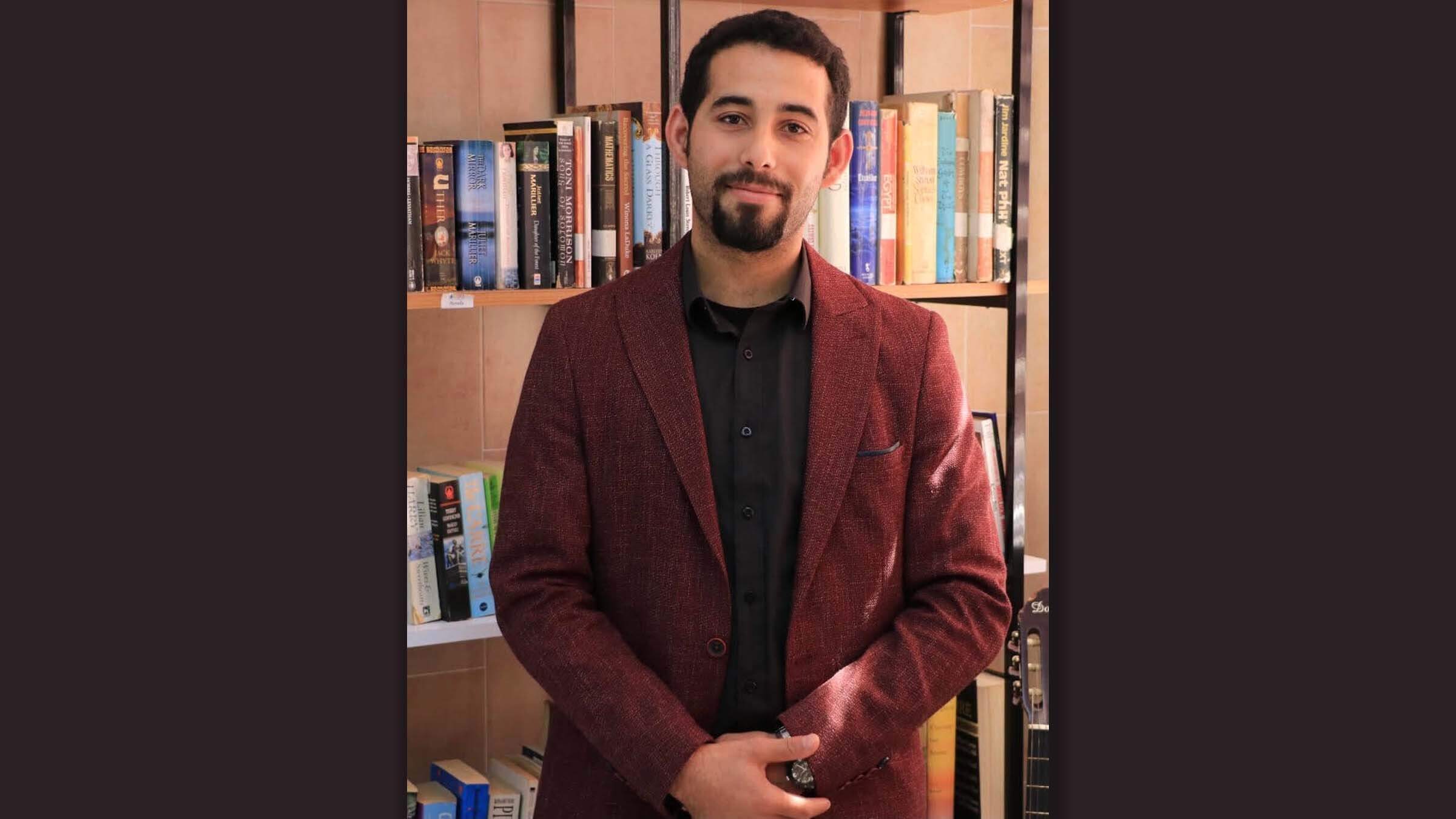Mosab Abu Toha isn’t the first Palestinian writer targeted by Israel
The poet was released Tuesday after two days in captivity. While the reason for his detention remains unclear, Israeli authorities have arrested and jailed celebrated Palestinian writers in the past.

Gazan Poet Mosab Abu Toha published his first collection, “Things You May Find Hidden In My Ear,” in 2022. Courtesy of City Lights Books
In the weeks prior to being captured by the Israeli military, Palestinian poet Mosab Abu Toha had emerged as a powerful witness to the human toll of Israel’s bombardment of Gaza.
He had reflected on the destruction of his parents’ home in The New Yorker; written about the impossibility of procuring food and other basic necessities in The Washington Post; and, in The New York Times, expressed outrage at an international community he saw as indifferent to the suffering of Palestinians. Poems from his 2022 debut collection Things You May Find Hidden In My Ear, which chronicles his experience of growing up in Gaza during its blockade by Israel and Egypt, appeared in several other publications.
It remains unclear whether the Israeli military, which detained Abu Toha while he was attempting to flee northern Gaza with his family, targeted Abu Toha because of that work. In a statement, the IDF said that Abu Toha was taken in for questioning alongside several other civilians suspected of interacting with terror organizations inside the Gaza Strip. Whether or not his detention was connected to his writing, Abu Toha now joins a roster of Palestinian writers arrested or jailed by Israeli authorities.
Mahmoud Darwish, one of the most celebrated Palestinian poets, was displaced as a child during the 1948 Arab-Israeli war, which Palestinians commemorate as the Nakba, Arabic for catastrophe.
Darwish grew up in the aftermath of that war, an era when Palestinian citizens of Israel had to obtain permits to travel within the country. As a young man in the 1960s, he was repeatedly jailed for traveling without such permits. After his poem “Identity Card” was turned into a popular protest song, Israeli authorities placed him under house arrest from 1968 to 1971. He left Israel permanently in 1971, living first in the Soviet Union and Lebanon and eventually settling in Ramallah.
Ghassan Kanafani, a novelist, was born in Akko, a mixed city now inside the state of Israel, in 1936, and grew up in Damascus, where he became involved with the Popular Front for the Liberation of Palestine. The group engaged in hijackings and bombing attacks against Israeli civilian targets, including the 1972 killing of 26 people in what is now Ben Gurion International Airport.
After that attack, Israel began targeting high-profile members of the Popular Front, and later that year, Mossad agents assassinated Kanafani through a car bombing in Beirut that also killed his 17-year-old niece.
Several contemporary Palestinian writers have also been arrested more recently. In 2015, for example, the Israel Police arrested Dareen Tatour, a poet and citizen of Israel, over social media posts they characterized as incitement to violence; one included a video of Tatour reading her poem “Resist, My People, Resist Them.” Tatour spent two years under house arrest before an Israeli court sentenced her to five months in prison in 2018.
The academic and author Ahmed Qatamesh has been subjected to administrative detention, in which Israel imprisons Palestinians on security grounds without trial or charges, several times. The human rights organization Amnesty International described him as a “prisoner of conscience.”
It is unclear whether Abu Toha was detained because of his writing, or individually targeted at all, rather than being interrogated as part of a random group. But Diana Buttu, a Palestinian lawyer in close touch with his family, said that public pressure from prominent literary organizations — including The New Yorker, PEN America, and the American publisher of his work, City Lights — may have helped secure his release.
Jehad Abusalim, a Palestinian writer who worked with Abu Toha on an anthology featuring writers from Gaza, posted on X that those who had advocated for the poet should do the same for all residents of the coastal enclave. “What if we felt this connected to every individual who has suffered?” he asked.
A message from our Publisher & CEO Rachel Fishman Feddersen

I hope you appreciated this article. Before you go, I’d like to ask you to please support the Forward’s award-winning, nonprofit journalism so that we can be prepared for whatever news 2025 brings.
At a time when other newsrooms are closing or cutting back, the Forward has removed its paywall and invested additional resources to report on the ground from Israel and around the U.S. on the impact of the war, rising antisemitism and polarized discourse.
Readers like you make it all possible. Support our work by becoming a Forward Member and connect with our journalism and your community.
— Rachel Fishman Feddersen, Publisher and CEO






















